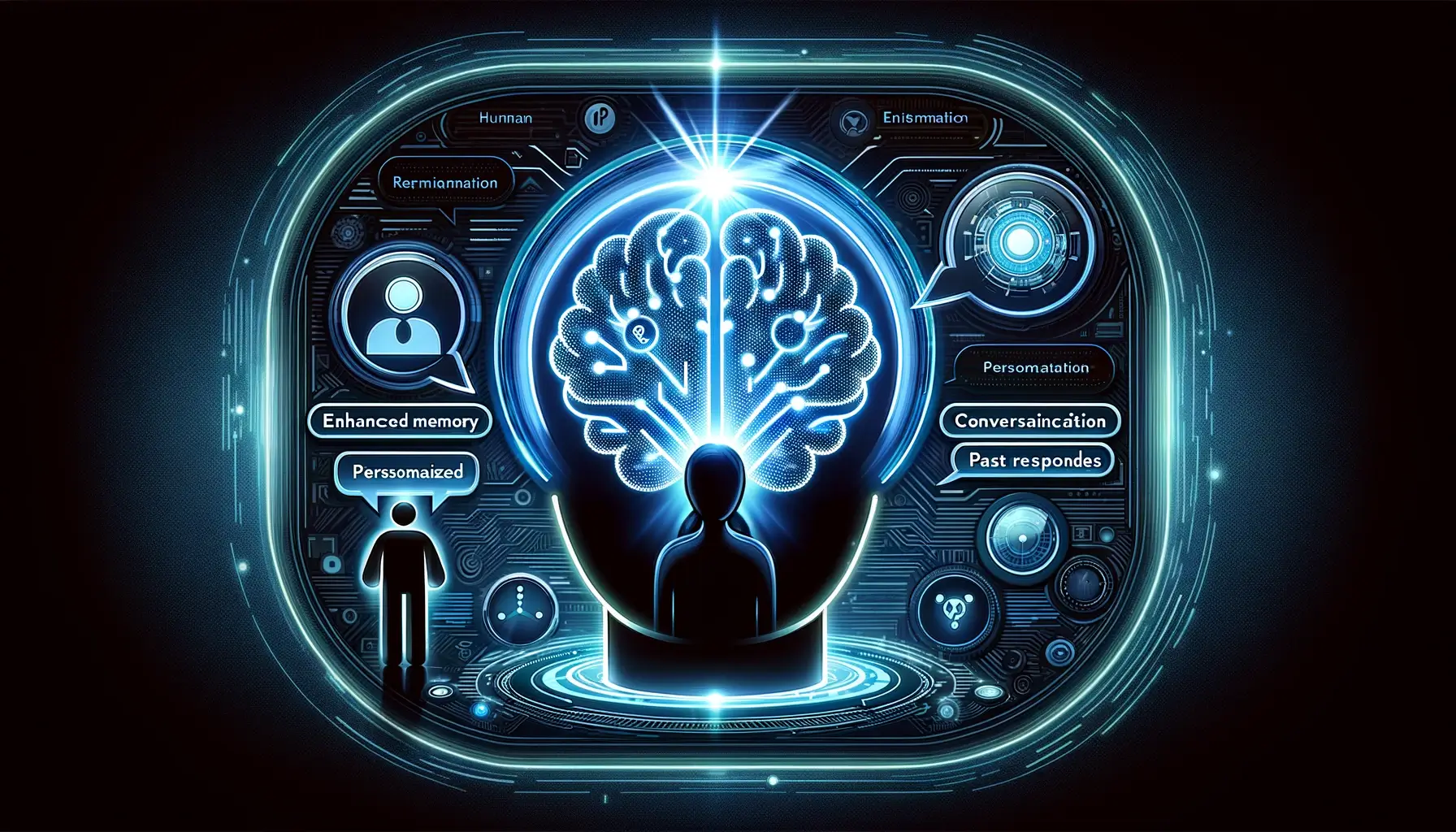OpenAI‘s latest innovation aims to revolutionize the conversational AI landscape with the introduction of a memory feature for ChatGPT.
By imbuing ChatGPT with the ability to remember past interactions, OpenAI seeks to enhance user experience and streamline conversations.
Empowering ChatGPT with Memory: Redefining User Interaction
In a groundbreaking announcement, OpenAI unveiled plans to equip ChatGPT with a memory feature, allowing the AI chatbot to retain information from previous conversations.
This transformative upgrade marks a significant milestone in the evolution of conversational AI, promising more personalized and contextually relevant interactions for users.
OpenAI’s decision to integrate a memory function into ChatGPT reflects a broader commitment to advancing the capabilities of AI-driven systems.
By harnessing the power of machine learning and natural language processing, ChatGPT aims to emulate human-like memory retention, enabling more fluid and engaging dialogues.
Personalized Responses and Enhanced Efficiency
The implementation of ChatGPT’s memory feature holds profound implications for user engagement and efficiency.
With the ability to recall user preferences and past interactions, ChatGPT can deliver tailored responses that resonate with individual users.
This personalized approach not only fosters deeper connections but also streamlines communication by eliminating the need to repeatedly provide the same information.
Furthermore, ChatGPT’s memory feature offers enhanced efficiency by learning from user behavior and adapting to their unique communication styles.
Premium users stand to benefit significantly from this functionality, as ChatGPT leverages insights gleaned from past interactions to optimize workflows and deliver more intuitive responses.
Customizable and User-Centric Design
OpenAI’s commitment to user-centric design is evident in the customizable nature of ChatGPT’s memory feature.
Users have the flexibility to adjust memory settings according to their preferences, enabling them to explicitly control what information ChatGPT remembers or forgets.
Additionally, OpenAI has implemented safeguards to protect user privacy and mitigate potential biases associated with AI memory retention.
By empowering users with granular control over their interactions with ChatGPT, OpenAI aims to foster trust and transparency in AI-driven communication.
The Road Ahead: Unlocking the Potential of Conversational AI
As OpenAI continues to push the boundaries of AI innovation, the integration of memory capabilities into ChatGPT heralds a new era of conversational AI.
By harnessing the collective power of machine learning, natural language understanding, and memory retention, ChatGPT is poised to redefine the way humans interact with AI systems.
Looking ahead, OpenAI remains committed to advancing the capabilities of ChatGPT and other AI models, unlocking new possibilities for human-AI collaboration.
With the memory feature serving as a testament to the transformative potential of AI-driven technologies, the future of conversational AI looks brighter than ever.
Hi everyone yes, I left OpenAI yesterday. First of all nothing "happened" and it’s not a result of any particular event, issue or drama (but please keep the conspiracy theories coming as they are highly entertaining :)). Actually, being at OpenAI over the last ~year has been…
— Andrej Karpathy (@karpathy) February 14, 2024
In parallel news, OpenAI’s founding member, Andrej Karpathy, announced his departure from the company, signaling a new chapter in his professional journey.
While Karpathy’s departure marks a significant transition for OpenAI, the company remains steadfast in its mission to drive innovation and shape the future of AI.

